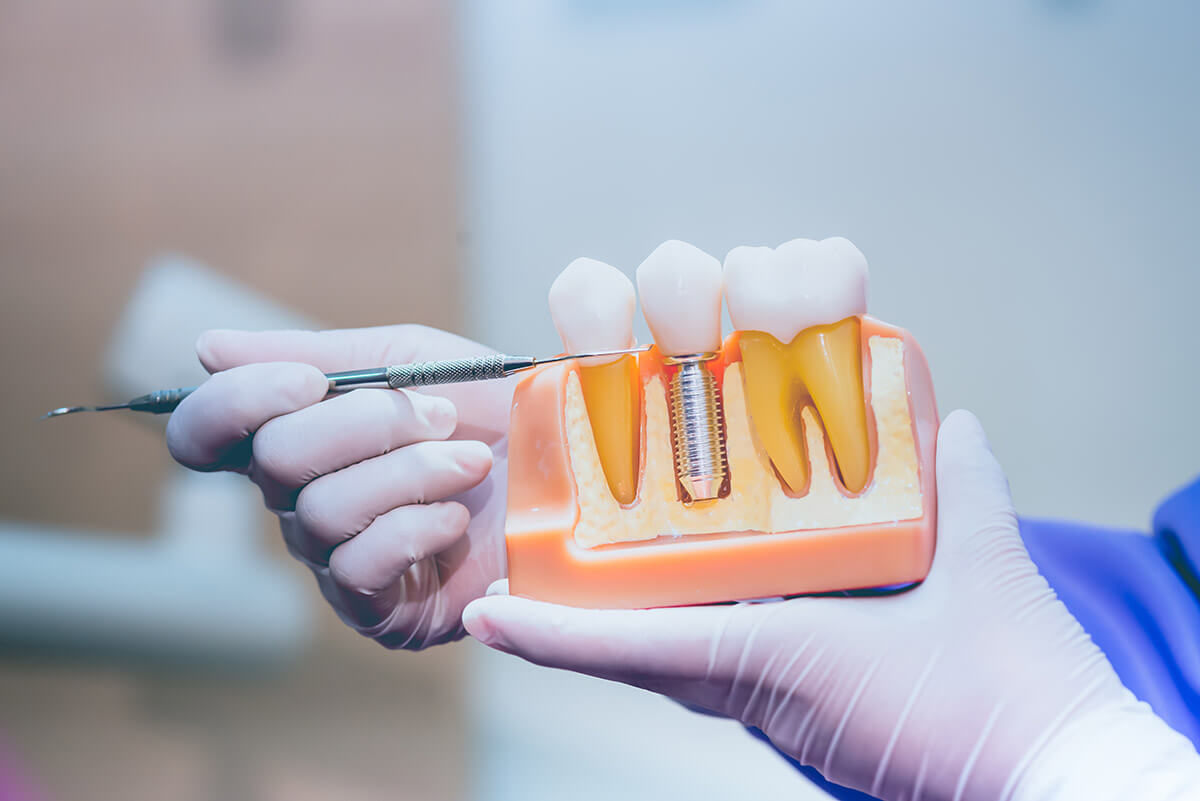Whatever the circumstance, be it home repairs, car troubles, or personal health, most people hope that the issue isn’t serious, and will eventually go away. Unfortunately, as we know, this isn’t always the case, and these issues can be indications of more significate problems down the road. For our oral health, we feel particularly vulnerable when experiencing problems with our teeth and smiles, as this could impact our daily life. For example, a noticeable missing tooth could be resolved with a dental implant, however many people are unaware of this generally accepted solution.
At Columbia Smiles, we are dedicated to helping patients through times of discomfort. During a consultation, we will discuss potential treatment options to address the concern. We offer a wide variety of dental services overseen by our experienced dentist, Dr. Michael Hsu. Our team will recommend the best dental options, as we are committed to our patients’ long-term care and recovery.
The Purpose of Dental Implants
Dental implants are a long-term solution for broken and missing teeth. These implants come in many shapes and sizes and can be used to fix both small and large tooth-related problems. The success rate of dental implants is between 90–95%. Keeping in mind that this success is based on proper care and healing.
3 Potential Problems with Dental Implants
1. Infection
Poor care of implants can lead to an infection of the implant and surrounding area. For the success of the treatment, it is critical that patients follow their surgeon’s instructions during recovery. If an infection should occur, the treatment could vary depending on the severity and location of the infection. Minor infections can be solved through antibiotics, while major infections may require corrective surgery.
2. Loose Implants
Loose implants typically occur after the first few weeks of surgery while the jawbone fuses with the dental implant. This process is referred to as osseointegration and is one of, if not the most important components in successful dental implant surgery. If the implant does not successfully fuse to the jawbone, the dental surgeon can remove it and reattempt the procedure after the area has healed.
3. Nerve or Tissue Damage
Nerve and tissue damage may occur if the implant is placed too close to the nerve in the jawbone. This nerve is known as the inferior alveolar nerve. Symptoms of nerve injury are continual numbness near the implant, lower lip, and chin, continual aches and displeasure, and sensations of tingling, tickling, and burning in the gums and skin of the surrounding area.
Avoiding Dental Implant Problems
The best way to avoid dental implant problems is to follow the dental surgeon’s aftercare instructions, being mindful of the issues mentioned earlier. However, there are a few ways to increase the success and healing of your dental implant, including:
- Avoid tobacco and vape products
- Follow an appropriate diet
- Floss regularly
- Avoid teeth grinding
- Regular dental visits
- Brush for two minutes twice a day
Dental Implant Restoration at Columbia Smiles
Dental implant restoration is the process that follows the placement of the implant. This stage is when the jawbone fuses to the implant and can take anywhere from four to six months. During this time, the fusing of the implant to the jawbone creates a sturdy foundation from which the new replacement tooth may comfortably reside. Once the area is healed and the process is complete, you’re all set to enjoy and use your new tooth.
At Columbia Smiles, we know that corrective oral surgery is concerning to some. Our practice is devoted to easing any fear and anxiety our patients may have regarding improving their oral health. Contact us today at 410.690.4855 to schedule your appointment now.







